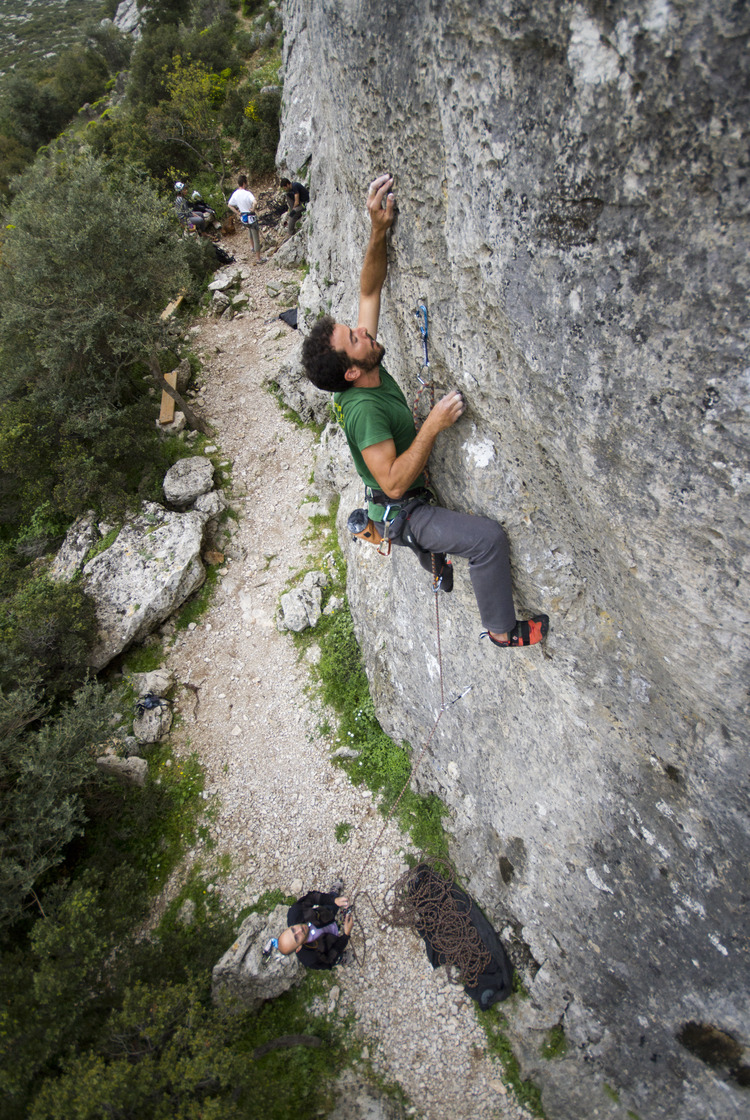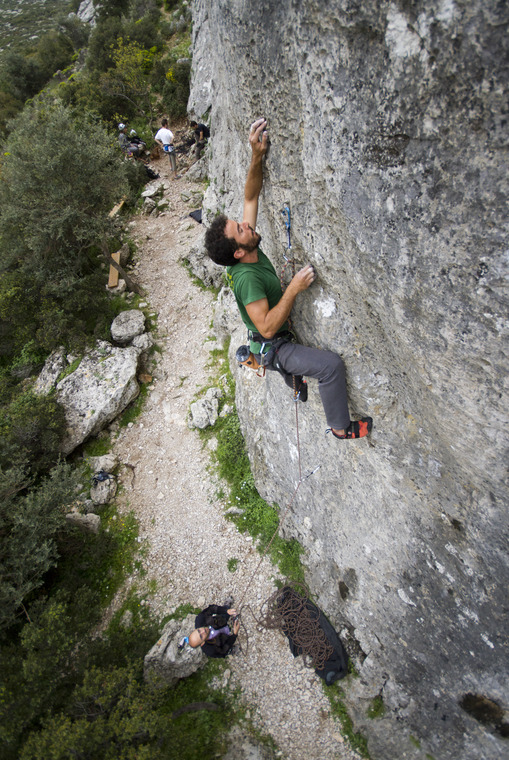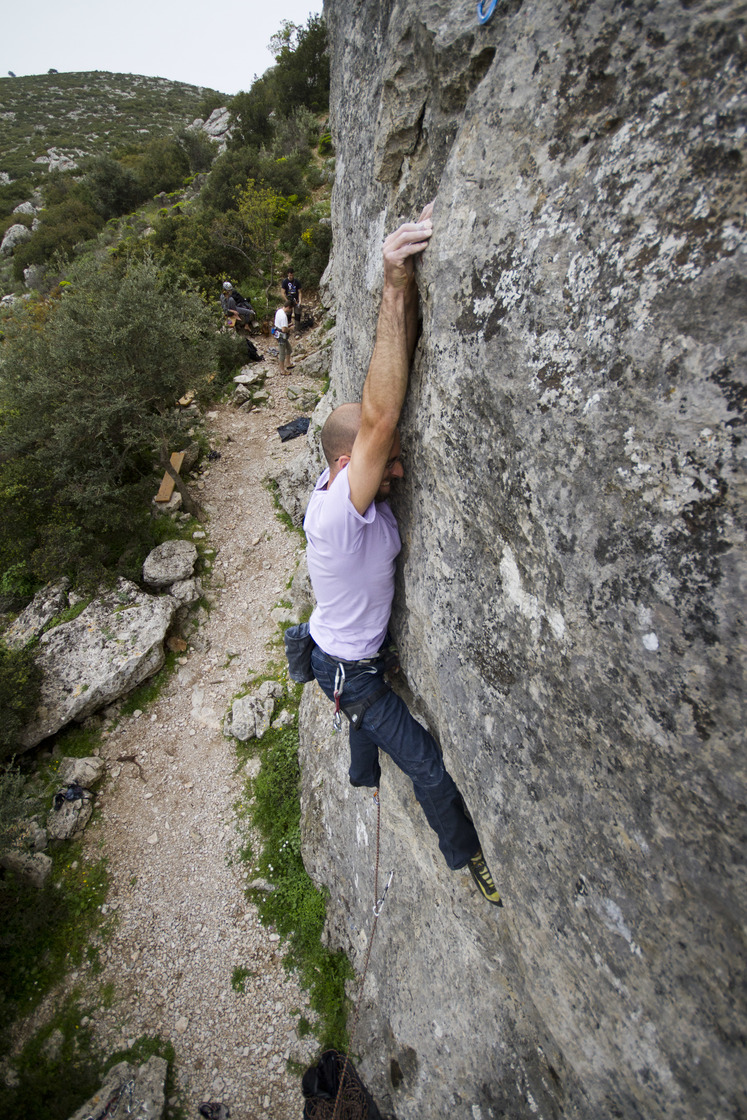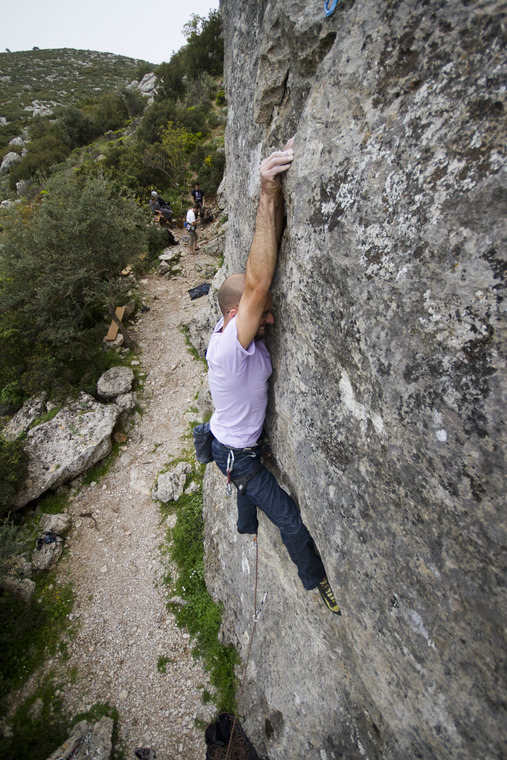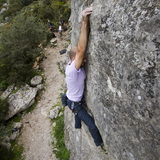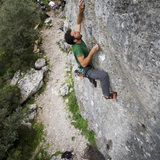Acharneis was developed by members of the Acharneis Mountaineering club as training ground for beginners and climbing schools. The character of the crag reflects this in every aspect, from the dense bolting to the zero-time access even the sitting benches below the routes. It’s undeniably one of the most popular crags in Athens attracting mostly novice climbers. In terms of geology, the rock is grey compact limestone of superb quality, dotted with pockets and cracks. Climbing is mostly on faces but quite variable. For the huge traffic it receives, the rock is admirably resistant to polishing.
Location-wise, the crag is situated above the popular tavernas of Fyli, which can get noisy on weekends, but otherwise the views are open and the north facing orientation make the place a good choice for warm days.
Acharneis is one of the best equipped crags in Athens (with the few bolting errors being corrected in the recent 2012 maintenance) strictly adopting the “training-crag” approach.
The inspiration for a crag to serve as training ground for new climbing schools and the actual shaping of Acharneis into exactly that, can be attributed to Aris Theodoropoulos. He, together with Dimitris Karalis and Danai Argiropoulou, opened the first routes in 2003 creating the official training ground of Acharneis Mountaineering Club.
Two years later, most of the routes on the lower smaller outcrop, later to be nicknamed by climbers “Kolones”, were established by K. Lafogiannis, S. Sotiriou, G. Aliferis and M. Senis. A series of boulders problems are also established at the time around the small rocks in the area by the same climbers.
In 2008, on a second bolting initiative, many climbers among which T. Michailidis, D. Stavrakakis, P. Karaberopoulos, N. Balafoutis, G. Kagiaftakis and A. Theodoropoulos open the remaining routes on the main sector.
In 2011 A.Paraskevopoulos et al opened a few routes on sector Kolones.
Finally, in the summer of 2012 A. Theodoropoulos carried out maintainance to anchors and bolts assisted by K. Roussou, G. Koutsoukis, M. Nikolakis and A. Parasekopoulos.
